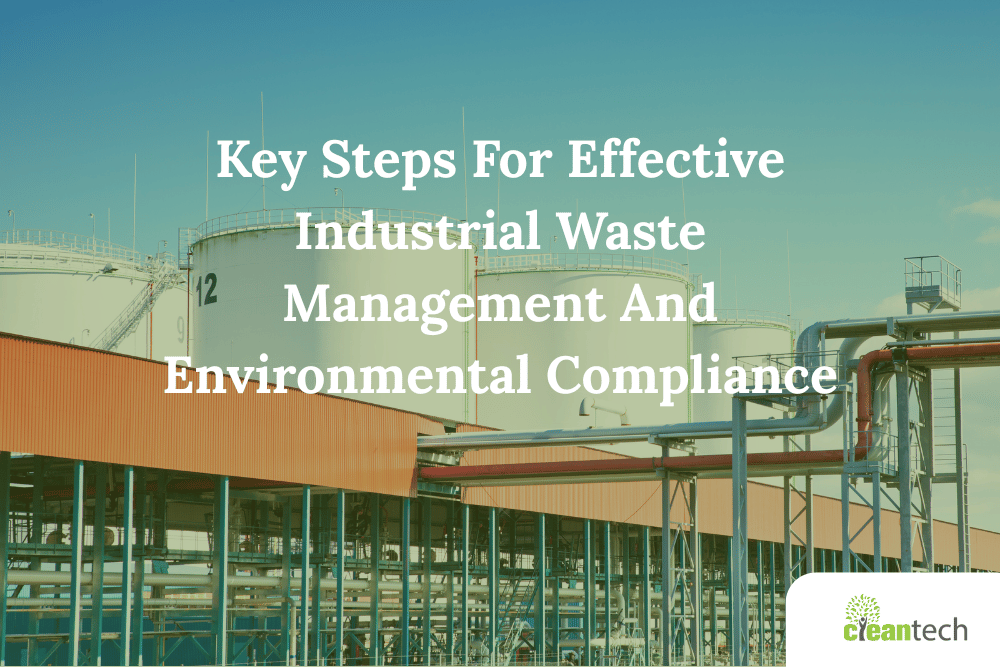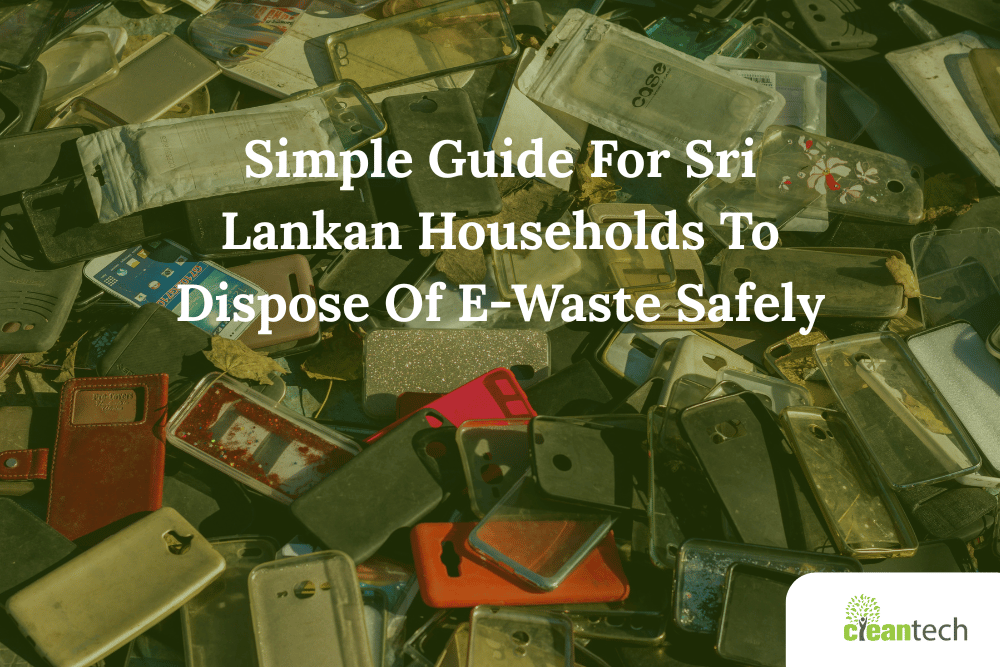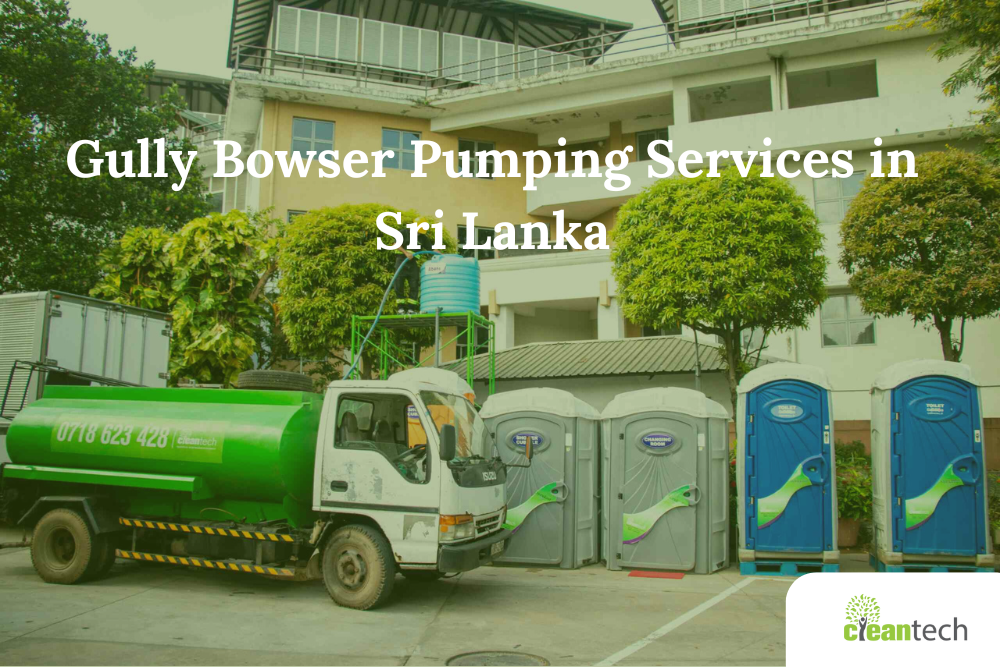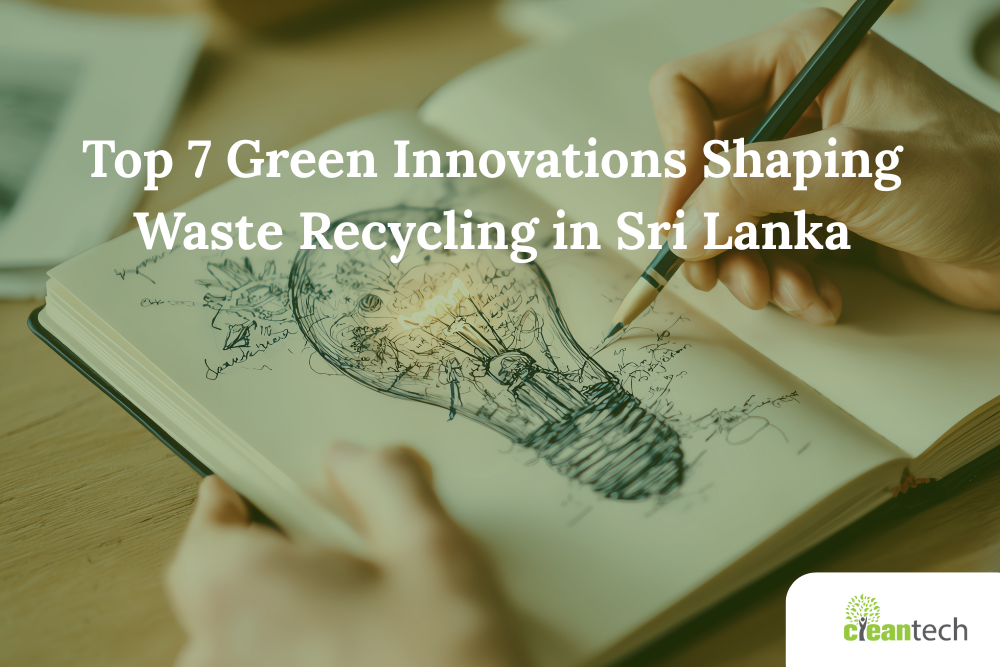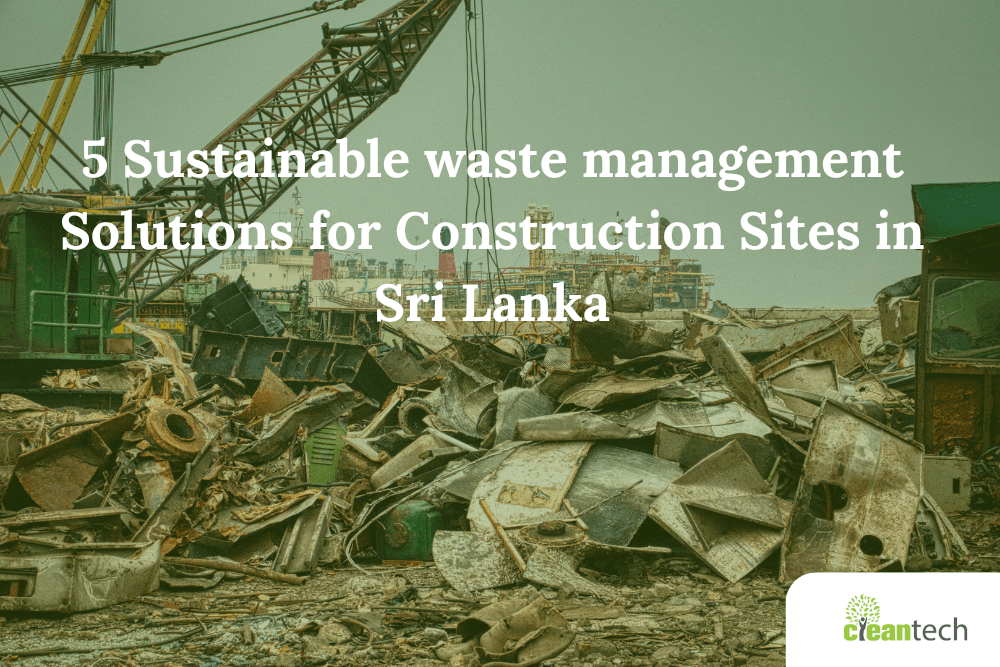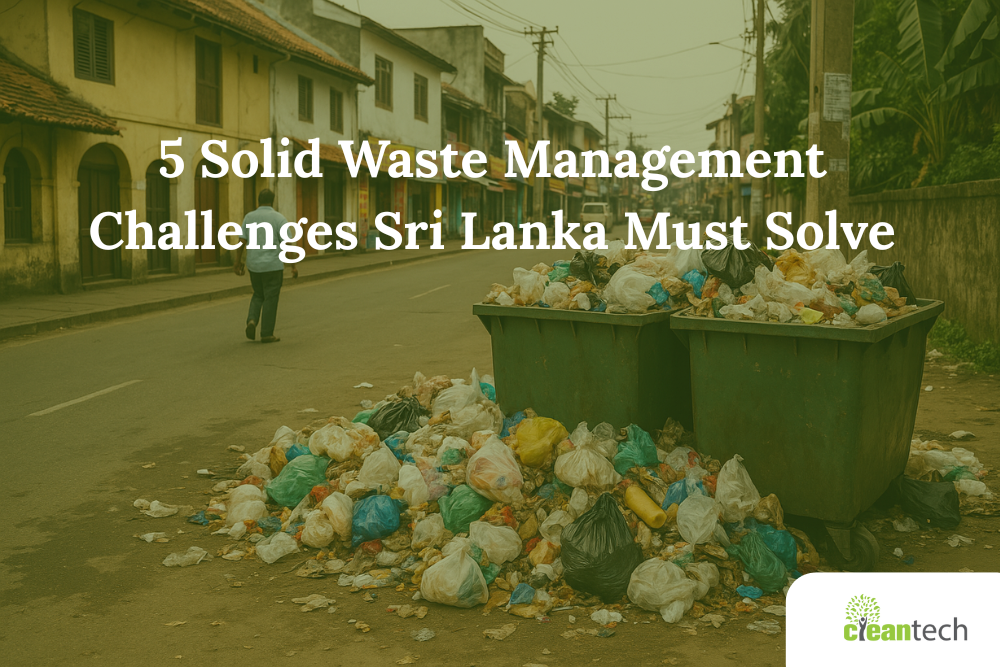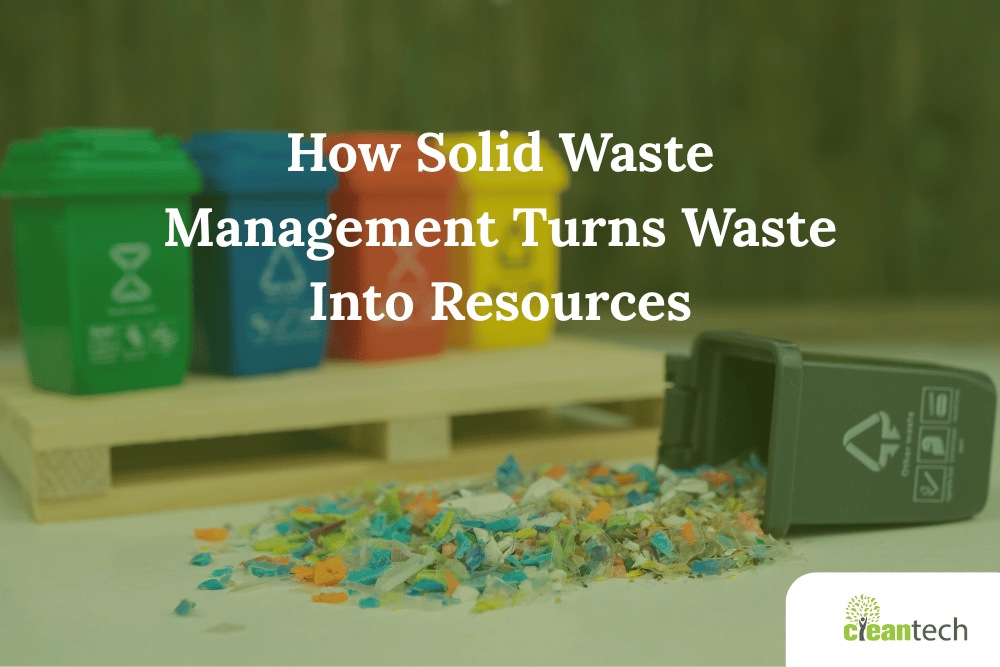
Solid waste is one of those everyday things that… Well, it keeps growing without anyone noticing until it becomes a headache. A bin is filled here, another bag goes by there, and somehow, before you know it, it’s piling up in homes, shops and entire cities faster than expected. And this happens not only in big cities, but small towns feel it too.
That’s one reason Solid Waste Management is now such a big topic. We’re not in the old days anymore when waste was simply “dump it far away and forget.” More countries, and even small communities, are starting to treat waste as something that might if handled properly turn into a useful resource. Not everything becomes useful, of course, but honestly, more than people think.
This blog tries to explain all that in very simple English. No complicated words, no heavy theories. Just a clear, human explanation of how Solid Waste Management works, why it matters, and how waste can shift from a problem into something valuable.
Understanding Solid Waste Management In Plain Terms
Solid Waste Management, or SWM, is basically the whole process of what happens to waste from the moment you throw it away until the very end. Collection, sorting, carrying it around, treating it and sometimes turning it into something useful instead of dumping it.
What counts as solid waste?
Solid waste is nearly everything we toss out:
- daily household rubbish
- waste from markets, offices, cafés, hotels
- food scraps
- plastics, paper, cardboard, glass
- small hazardous items like old batteries or chemicals
- workshop or factory leftovers
It’s a wide mix. And one of the biggest issues is when all these different types get thrown together in a single bin. Once mixed, everything becomes harder to manage.
Why Solid Waste Management matters
If waste piles up or gets managed poorly, the consequences show up pretty quickly. You see litter within the streets, bad smells from open dumping, clogged drains after rain, pests spreading round, and truly human beings get frustrated. It’s bad too. Burning plastics releases smoke which could stick in the air and lungs.
A right Solid Waste Management system enables us to keep away from all these troubles. Clean towns appear higher, attract more visitors, assist local businesses, and really experience nicer to live in. It’s more than a central authority problem it becomes something groups experience proud approximately.
How Waste Can Become A Useful Resource
Here’s the part people don’t always expect: waste can become something useful. Yes, not all of it. But a surprising amount can. With the right system, waste can create jobs, produce energy, improve soil, and even reduce how much we spend on new materials.
Recycling: a second life for materials
Recycling is one of the easiest examples. When waste is sorted properly:
- paper becomes new packaging or notebooks
- metal becomes new tools or machine parts
- glass melts and becomes new bottles
- plastic turns into pellets that factories use again
and this is the key: recycling works best when people sort their waste before throwing it. Dirty, mixed waste makes recycling harder, sometimes impossible.
Turning food waste into compost
A huge amount of global waste is food that ends up in bins. But food waste does not need to go to landfills. It can become compost. Compost is like a natural soil booster used in gardens, farms, or planting trees in cities.
Instead of producing methane gas in landfills (which is harmful), composting food waste creates something helpful. It improves soil and reduces the need for chemical fertilisers.
Energy recovery: getting power from waste
Some waste can be used to produce energy. This is not science fiction; many countries do this already.
- Waste-to-energy plants burn certain waste in controlled environments
- Organic waste can be used to make biogas
- Industrial waste heat can be captured and reused
These methods help reduce the use of coal or fuel, even if only a little at a time.
Reuse and upcycling
Sometimes the best waste solution is to reuse the item. Repairing broken furniture, keeping jars instead of buying new containers, repurposing bottles, or using old materials for creative projects these simple actions reduce waste more than people realise.
Upcycling gives items a new purpose, often better than the original.
Key Steps That Make Solid Waste Management Work
Solid Waste Management might sound like a huge government operation, but it’s really a set of simple steps done properly.
Step 1: Sorting at home or workplaces
Sorting is not complicated. It’s just separating the three basic types:
- organic waste
- recyclables
- general waste
When waste is sorted early, everything that comes after collection, composting, recycling becomes smoother. Even labels on bins help reduce mistakes.
Step 2: Reliable collection and transport
Once sorted, waste must be collected regularly. If garbage trucks don’t come on time, people lose patience and dump waste wherever they can. Collection teams should be trained and respectful because they’re doing essential work.
Clean vehicles, proper routes, and a fixed schedule make the whole system reliable.
Step 3: Processing and treatment
After collection:
- recyclables go to sorting centres
- food waste goes to compost sites
- suitable waste goes to recycling plants
- energy-recoverable waste goes to special units
- the final leftovers only those go to landfills
Economic And Environmental Benefits That Follow
When Solid Waste Management is done well, the benefits spread wider than people think.
More jobs
Waste management creates many types of jobs:
- collectors
- composting teams
- drivers
- recycling plant workers
- sorting centre staff
- repair shops and reuse centres
A whole ecosystem forms around waste in a good way.
Cleaner, healthier neighbourhoods
Proper waste systems create:
- less litter
- fewer pests
- cleaner air
- safer public areas
- better spaces for children
Saving natural resources
Recycling reduces the need to dig up metals or cut more trees. Composting reduces chemical fertilizer demand. Reuse reduces manufacturing needs. All these steps protect nature and support a circular economy.
Conclusion
Solid Waste Management is not only about collecting rubbish. It’s about understanding that waste can actually hold value, and if we manage it properly, it becomes part of a useful cycle instead of a burden.
When communities follow simple steps sorting, collecting, composting, recycling they transform waste into resources. Cleaner streets, healthier people, more jobs, and less pressure on landfills are all part of the result. It’s slow work sometimes, yes, but it works.
A cleaner, more sustainable future starts with small habits. Where we put our waste matters. How we handle it matters. And when everyone takes even a small bit of responsibility, Solid Waste Management becomes something powerful, turning yesterday’s waste into tomorrow’s resource.

